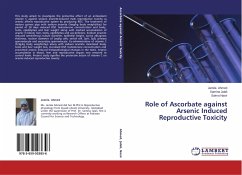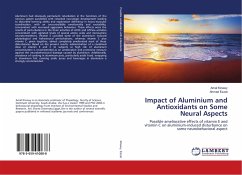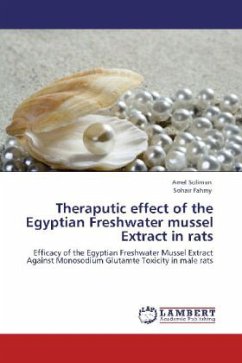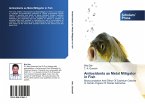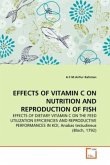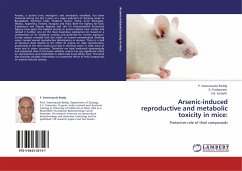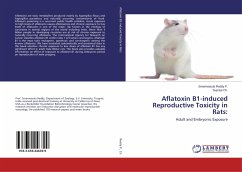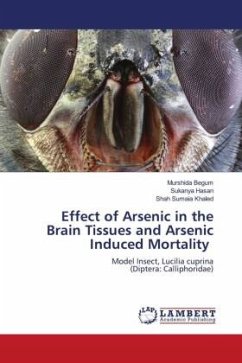This study aimed to investigate the protective effect of an antioxidant vitamin C against sodium arsenite-induced male reproductive toxicity as arsenic affects reproductive system by producing ROS. The treatment of mature guinea pigs with sodium arsenite (5mg/kg body weight/day) for period of 28 days reduced DSP, testosterone concentration and body, testis, epididymes and liver weight along with marked accumulation of arsenic in blood, liver, testis, epididymes and vas deferens. Sodium arsenite reduced seminiferous tubule diameter, epithelial height, tunica albuginea thickness, nuclear diameter of Leydig cells, sertoli cell, SpA, SpB, primary spermatocyte and secondary spermatocyte. Co-administration of vitamin C (0.3g/kg body weight/day) along with sodium arsenite minimized body, testis and liver weight loss, increased DSP, testosterone concentration and prevented arsenic induced histopathological changes in the testis. Arsenic accumulation in blood, liver and reproductive organs was restored to control levels. Present study signifies the protective action of vitamin C on arsenic-induced reproductive toxicity.
Bitte wählen Sie Ihr Anliegen aus.
Rechnungen
Retourenschein anfordern
Bestellstatus
Storno

